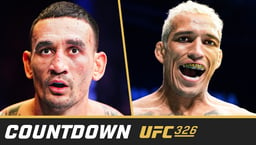
Issue 056
November 2009
Professional fighter Rosi Sexton is a sports therapist and osteopath-in-training. She has fought in countries such as Russia, Canada and the USA, and is ranked as one of the top competitors in her weight class.
My doctor is garbage! I’m sure he doesn’t take me seriously because I do ‘cage fighting stuff’, and he just sends me away with painkillers! All the MMA fighters I know say the same thing. Are all doctors like this?
Remember that general practitioners have a limited amount of time to assess what’s wrong with you, and limited tools to solve the problem. They are only human and, as in any profession, some are better or more helpful than others. By understanding what a GP does, and using good communication skills, you can save yourself a lot of frustration.
Doctors are the first port of call for most people with non-emergency health problems. They are generally good with routine and minor illnesses, and act as a gatekeeper to other services by referring patients with more serious problems to the appropriate specialist.
A GP’s options for dealing with a typical sporting injury are usually limited to prescribing painkillers or anti-inflammatories; referral for physiotherapy; or referral for further tests / scans / consultation with an orthopedic specialist.
If you aren’t happy with the options that your doctor provides, then you might prefer to seek help from a private osteopath, physiotherapist or chiropractor directly.
Do’s and Don’ts for communicating with your doctor
Don’t tell the GP you’re a “cagefighter”
This is not the best way to get your injury taken seriously. Remember that a doctor’s time with each patient is very limited, and they’re unlikely to be interested in a discussion about the technical aspects of the sport. The term ‘mixed martial arts’ is preferable, but sometimes it’s just easier to explain what you were doing in terms of the better-known combat sports. For example, saying you were doing kickboxing, wrestling or judo may convey more quickly and accurately how the injury actually happened, and is less likely to leave him with the impression that you’re a thug.
Do tell the GP about any concerns you have
For example, if you’ve been wrestling with a bunch of people with ringworm, and the doc confidently tells you the rash on your arm is eczema, then by all means say something like “I’m worried it may be ringworm, because several of my training partners at wrestling have it.” But at the same time....
....don’t tell the GP how to do his job
Walking into the surgery and telling him what’s wrong with you and what he needs to do about it is rarely helpful.
Do ask questions
Make a list in advance of questions you want to ask the doctor. Remember to ask about things like how the injury or illness will affect your training or how long you’ll have to wait to see the specialist. If there’s anything you don’t understand, don’t be afraid to ask for an explanation.
Do mention the effect that not being able to train has on your life
This is especially true if it forms part of your job – for example, if you are a professional fighter or a coach.
Don’t expect miracles!
Injuries often just take time to heal. Make sure you allow enough time before returning to MMA – going back to training too soon may set you back or cause long-term problems.
Do what you can do to help yourself
Simple things such as using RICE (Rest, Ice, Compression and Elevation) immediately after an injury can make a big difference – don’t neglect them.
If you are concerned that your doc has missed something important, or your symptoms are getting worse, then go back! Be polite, but persistent. If you are still in doubt then get a second opinion, especially before making big decisions such as whether to have an operation or when to retire from professional MMA.
Finally, if you’re not happy with the way you are treated by your doctor or you sense that he feels negatively towards you because of the sport you do, then don’t waste time arguing with him – find yourself another.










